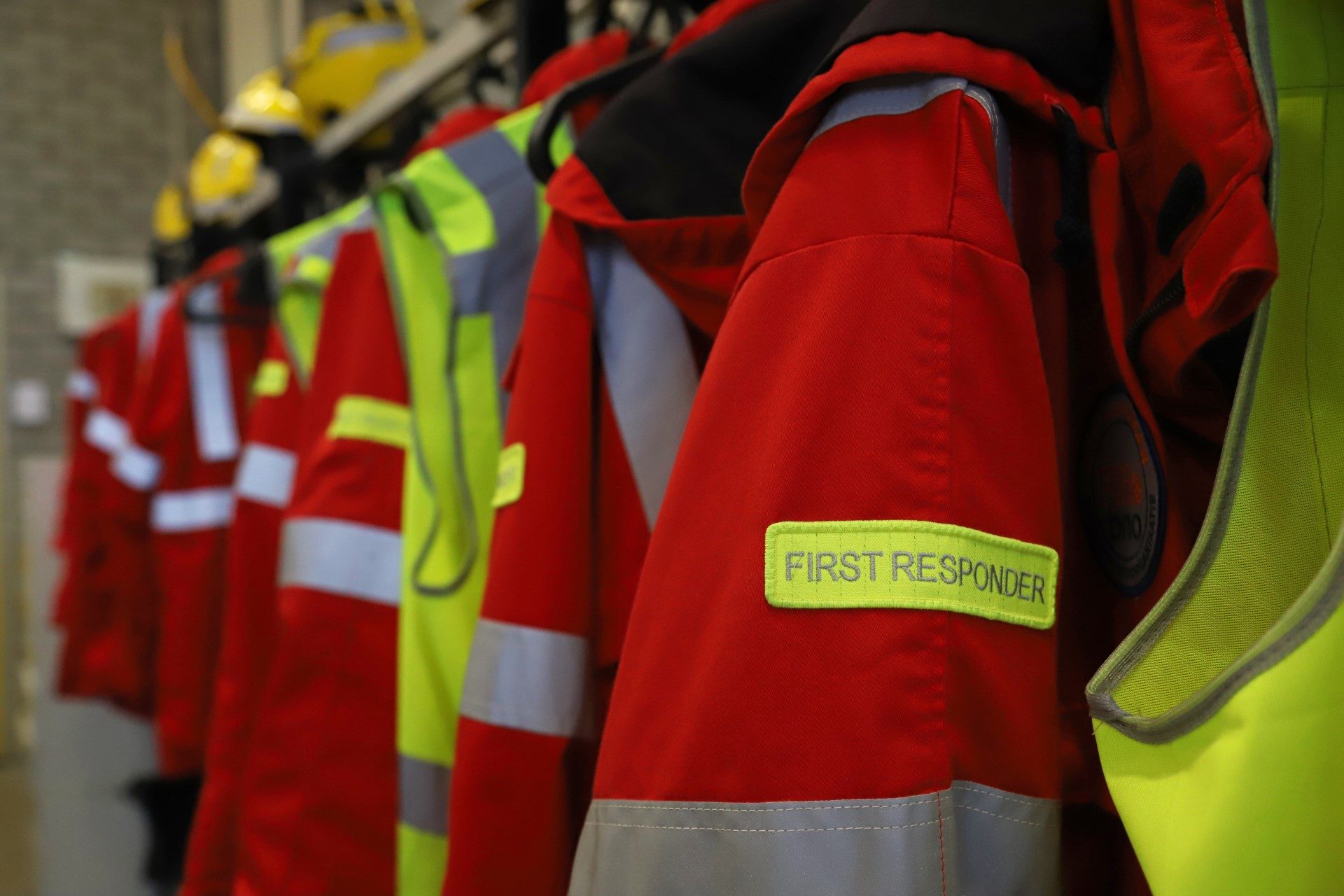Our dedication lies not just in treating symptoms but in addressing the root causes, offering a holistic approach that integrates the best of therapeutic practices with the warmth of community support.
How First Responder Culture Contributes to Substance Use Disorder

First responders do hard, dangerous work and operate within a culture that is proud of its ability to do that work day after day with no complaints. That stoicism can come at a cost to their health and personal lives. We see it in the high rates of substance use disorder and mental health disorders among first responders. Around a third are diagnosed with post-traumatic stress disorder (PTSD), depression, and anxiety. Half of those with mental health disorders also have a substance use disorder.
What contributes to these rates? A number of factors that make first responders more susceptible:
- First and foremost, the work they do. They are often exposed daily to danger and violence. They see abused children, murder, fires, fights, and the list could go on. In order to do their jobs, they cannot stop or turn away. Dealing with what they have to take care of on their shift requires “sucking it up” and continuing their work.
- With long, intense work hours, often unpredictable or lasting for two to three days at a time, it’s hard for them to take even minimal care of themselves. They get little sleep, eat unhealthy food, take in caffeine to stay alert, can’t find time to regularly exercise, and don’t have an opportunity to process what they have experienced. It’s a perfect set up for developing mental health disorders and substance use disorders.
- When they get off work, it’s not surprising that they need to de-stress. In first responder culture, one of the most acceptable ways to do that is by drinking, usually with colleagues at a bar. It’s not only socially acceptable, it’s considered part of the culture so there’s a lot of peer pressure to participate.
- Some use drugs for pain or to alleviate stress. The work can throw off natural sleeping rhythms so some first responders sometimes take sleeping pills at home. They may drink throughout their days at home, often at times when everyone else in the house is at work or school so it goes unnoticed and unchecked.
- For very good but ultimately damaging reasons, first responders often compartmentalize what they have seen and experienced at work so they can find some peace. Unfortunately, unless it’s processed, the stress and trauma will show up in other ways.
- It’s often seen in fraying relationships with their spouses, children, other family members, and friends. It would be hard for any human to navigate the transition from seeing the worst of life while on the job to then quickly transitioning to what is supposed to be a happy home life. Most first responders work in a culture that asks them to ignore their mental and emotional health needs and take orders. They come to expect that in their personal lives as well, often to the detriment of healthy and loving relationships.
How Can You Help?
If you are a first responder worried about a colleague or the family member or friend of a first responder, you can help by being aware of changes in their personality, work routines, and behavior at home:
At Home
- Are they more irritable or moody than usual?
Do they yell more at their children? Or are they hypervigilant about their children’s safety? - Are they unable to sleep?
- Have you noticed them drinking more? Maybe you see more cans or bottles in the trash or find them hidden around the house or garage.
- Do they seem less willing to engage in activities with family or friends? Are they isolating?
- Have they expressed an interest in quitting or decreasing drinking or using drugs but seem unable to do that?
- Have they expressed hopelessness or have they stopped making plans for the future?
At Work
- Have they missed meetings?
- Are they chronically late?
- Do they seem less engaged than usual?
- Are they taking unnecessary risks?
- Are they isolating more than usual?
While answering yes to any of these questions doesn’t definitively indicate mental health issues or addiction, it is a good reason to talk with the person to see if help is needed. If that’s not possible, talk with a mental health professional to find out what next steps you should take.
There are specific programs for first responders in the Washington, DC metro area as well as support and recovery groups. Treatment with peers and peer recovery groups are often more acceptable to first responders because the culture is so tight-knit and peers understand what their colleagues face on the job.
Encore Outpatient Services offers treatment for addiction and co-occurring disorders and our team has a number of staff and therapists who can answer questions about working with first responders or can help provide support in navigating how to get help for yourself or a loved one. Our outpatient programs can be a good option for people who need flexibility and don’t require inpatient treatment.
If you have questions about our program, please contact us at 703.436.8158.
Let Us Support You On Your Recovery Journey!
Copyright 2026 Encore Outpatient Services | All Rights Reserved



